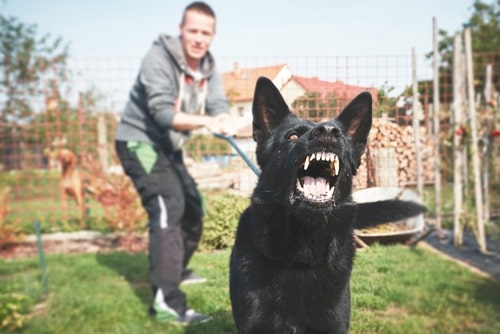Dogs are known for their loyalty, affection, and companionship, but occasionally, some dogs may exhibit aggressive behavior that can lead to attacks and bites. Understanding the reasons behind why some dogs attack and bite people is complex, as a combination of genetic, environmental, and situational factors can influence it. It’s important to remember that not all dogs are prone to aggression, and responsible ownership and proper training can help prevent these incidents.
At Shapiro, Washburn & Sharp, we understand how scary and upsetting a dog bite can be. Contact our experienced lawyers to schedule a free review of your claim and determine what course of action we recommend for your situation. Call us today at 833-997-1774 to learn more about your legal options.
Fear and Anxiety
Fear is a significant trigger for aggression in dogs. When a dog feels threatened or anxious, it may respond with aggression as a means of self-defense. Fearful dogs may bite to protect themselves, their territory, or their owners. For example, a dog exposed to a traumatic experience, such as abuse or a frightening incident, may become more prone to aggression out of fear.
Territorial Instincts
Dogs are territorial animals, and they may become aggressive when they perceive a threat to their territory, including their home or yard. This territorial aggression is often directed toward strangers or other animals who encroach on what the dog considers its territory.
Protective Behavior
Dogs are naturally protective of their owners and families. If a dog senses that a loved one is in danger or perceives a threat to its pack, it may resort to aggression as a protective response. This protective behavior can manifest when someone approaches or interacts with a family member in a way that the dog interprets as a threat.
Resource Guarding
Some dogs may become aggressive when it comes to protecting their resources, such as food, toys, or possessions. This behavior, known as resource guarding, can lead to biting if someone tries to take the dog’s possessions away.
Lack of Socialization and Training
Proper socialization during a dog’s early development is essential to ensure they are comfortable around people, other dogs, and various situations. Dogs that haven’t been adequately socialized may become anxious, fearful, or aggressive when exposed to new people or environments.
Training is also essential. Dogs that have not received proper training and socialization may not know how to interact with people or other dogs appropriately. This lack of training can lead to misunderstandings and aggression in social situations.
Pain or Medical Issues
Dogs in pain or suffering from underlying medical conditions may become more irritable and prone to aggression. When a dog is in pain, it may lash out to communicate its discomfort or as a defense mechanism against being touched or handled.
Predatory Drive
Some dog breeds have a strong predatory drive, which can lead to aggressive behavior, especially if they see small animals or children as potential prey. This instinctive behavior is often more prevalent in breeds that were historically bred for hunting.
Genetic Predisposition
Some dogs may have a genetic predisposition toward aggression. Breeds historically bred for protection or aggression, such as guard dogs or fighting breeds, may be more prone to aggressive behavior.
Miscommunication
Dogs communicate primarily through body language; misinterpretations can lead to aggressive responses. A person or another dog may unknowingly exhibit threatening body language or gestures that trigger a dog’s aggressive response.
What Should I Do If I Think I Have a Personal Injury Case?
If you have suffered dog bite injuries, call 833-997-1774 to schedule a free consultation with one of our dedicated personal injury lawyers. At Shapiro, Washburn & Sharp, we have obtained more than $100 million in settlements and awards for our clients and will work diligently to get you the financial compensation you deserve. We work on a contingency fee basis, meaning we only get paid if you win your case!
